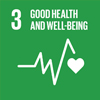
In life, we are never truly free from difficult times or feelings of sadness. However, there is often pressure to suppress or ignore that negative emotions and replace them with positive thoughts, attitudes, and expressions in every situation. Without realizing it, the habit of suppressing or ignoring negative emotions can harm our mental health in the long run. This behavior is known as toxic positivity, a mindset that demands a person always think positively no matter the circumstances, even when they are not truly okay.
Understanding Toxic Positivity
Toxic positivity refers to an attitude or belief that forces excessive happiness and optimism while denying or rejecting the presence of negative emotions. This doesn’t happen internally, it can also show how we respond to others. Phrases like “Look on the bright side” or “Everyone has problems” may sound harmless and well-intentioned, but they can invalidate the emotional experiences someone is going through.
According to emotion regulation theory, constantly suppressing negative feelings and forcing oneself always to think positively can worsen mental health conditions. Negative emotions such as anxiety, disappointment, or exhaustion, are a natural part of life and are often the first step toward healing and mental well-being. In this context, toxic positivity is different from optimism. Optimism allows room for emotional acceptance and validation. In contrast, toxic positivity inhibits emotional processing by dismissing or entirely rejecting any feeling that is not deemed positive.
We also need to be cautious when trying to encourage or motivate someone going through emotional distress. Sometimes, even with good intentions, the way or timing of our words can make our encouragement seem dismissive of their feelings. Statements like “Don’t be too dramatic, just think from the positive side” may sound reassuring but also risk invalidating the sadness someone is experiencing.
Furthermore, according to the Cognitive Behavioral Therapy (CBT) approach, suppressing or ignoring negative emotions without processing them only reinforces unhealthy thought patterns. It denies individuals the opportunity to understand and manage their feelings healthily. Over time, this can lead to other psychological issues, such as excessive anxiety, chronic stress, depression, or even burnout.
How to Deal with Toxic Positivity
To maintain mental well-being, it is essential to give space to all kinds of negative and positive emotions. Accepting that negative emotions are a regular part of human life is a healthy first step toward recovery. Managing stress through mindfulness practices like meditation, breathing exercises, or journaling can also help us cope with pressure without forcing ourselves to feel okay or denying the emotions we are experiencing. At the same time, learning to respond to emotions, both our own and others, healthily is just as important. This means not only telling others to think positively but instead offering a listening ear, being present, and validating the emotions they are experiencing.
If you’re feeling overwhelmed or need someone to talk to, don’t hesitate to seek professional help. At FEB UGM, the Career and Student Development Unit (CSDU) offers free counseling services to all FEB students. There’s also a Peer Support system, where fellow students are trained to be listeners and companions to share about difficult times that can help ease the burden in your mind.
What’s important to remember is that negative feelings such as sadness, disappointment, or fatigue are not signs of weakness. On the contrary, they are signals that we may need time to rest and recover. Acknowledging that is not a sign of failure but rather courage which is an essential step toward self-honesty and caring for our mental health.
Source: CSDU
Rewritten by: Najwah Ariella Puteri
Sustainable Development Goals









